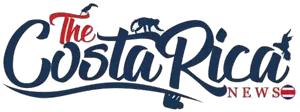Welcome to the whimsical world of Costa Rican slang, where the language is as colorful and diverse as the country’s flora and fauna. If you’re planning to mingle with the locals or just want to understand the Ticos better, this guide is your golden ticket to becoming almost a native speaker. Get ready to dive into a linguistic adventure that will make your Costa Rican escapade even more memorable.
Unleash the Tico Within: Your Guide to Costa Rican Colloquialisms
Pura Vida – The Costa Rican Mantra This phrase is the quintessential Costa Rican slogan. Literally translating to “pure life,” it epitomizes the country’s laid-back and optimistic spirit.
Tiquicia – The Endearing Term for Costa Rica Locals often refer to their beloved country as “Tiquicia,” a term as warm and inviting as Costa Rica itself.
Tico/Tica – The Costa Rican Identity Costa Ricans proudly call themselves Tico or Tica. This nickname stems from their unique way of speaking, where diminutives end in “-ico” instead of the more common “-ito.”
Mae – The Costa Rican ‘Dude’ Primarily used by the younger crowd and older men among friends, “mae” is the Tico version of ‘dude.’ It’s a sign of camaraderie and casual conversation.
Diay or Idiay – The Tico ‘What?’ or ‘Um’ This versatile word can express surprise, confusion, or simply fill a pause in speech, much like ‘um’ does in English.
Tuanis – The Cool of Costa Rica Believed to have evolved from “too nice,” this word is the Tico stamp of approval for anything cool.
Que Chiva – Expressing Coolness Across Ages “Que Chiva” is the universal Costa Rican expression for something that’s amazingly cool.
Suave – Slow It Down, Tico Style In Costa Rica, “suave” means to take it easy or slow down, a reflection of the country’s relaxed attitude.
Socale – The Costa Rican ‘Hurry Up’ Contrasting with ‘suave,’ “socale” is the go-to term when you want to speed things up.
Brete – The Work Life in Costa Rica Whether it’s homework, housework, or a job, “brete” is the all-encompassing term for work. You can also ‘bretear,’ meaning to work.
Al chile – Seriously, Tico? A favorite among locals, “al chile” translates to “to the chile” but means “seriously” or “truly.”
Chunche – The Thingamajig of Costa Rica “Chunche” is the Tico word for ‘thing,’ an indispensable part of any Costa Rican’s vocabulary.
¡Qué barco! – That’s Over the Top! When something or someone is being excessive or unbelievable, Costa Ricans exclaim “¡Qué barco!” which literally means “what a boat.”
Embarcar – Trouble, Tico-Style “Embarcar,” or “to get on the boat,” is used when someone finds themselves in a tricky situation.
Meter la pata – Classic Trouble Yet another phrase for landing in hot water, “meter la pata” translates to “put your foot in it.”
Jupa – Head in Costa Rica Pronounced ‘hoo-pah,’ “jupa” is the slang for ‘head.’
Melar – The Tico Way to Eat “Melar” is to eat, and you can also say “¡qué mela!” to compliment a great meal.
H.P. – The Costa Rican Bastard H.P. is the abbreviation of “hijue puta,” a phrase used so casually in Costa Rica that it’s lost its offensive edge.
N.J. – Let’s Get Moving! “N.J.,” short for “nos juimos,” signals it’s time to leave.
Ando tras del palo – Utterly Lost When someone doesn’t understand something, they might say “Ando tras del palo,” meaning ‘I’m behind the tree.’
Hablar paja – Just Talking Nonsense When conversation is light and not serious, Costa Ricans say they’re “hablando paja.”
Despiche – What a Mess Used to describe a messy situation, “despiche” comes from “picha,” meaning ‘dick.’
Pichazo – A Ton of Something Another derivative of “picha,” “pichazo” refers to a large amount of something, like a crowd.
Un Rojo – The 1,000 Colón Bill Due to its color, the 1,000 colón bill is simply called a “rojo” or ‘red.’
Una Teja – Double Duty Slang This term can mean 100 colones or describe a cool person.
Mejenga – Soccer Time In a country where soccer reigns, “mejenga” is the word for playing the sport.
Estuche – The Soccer Stadium Costa Ricans refer to their soccer stadiums as “estuches,” meaning ‘cases.’
Guaro – The Spirit of Costa Rica While “guaro” can refer to any liquor, it’s specifically associated with Cacique, the national liquor.
Estar de Goma – Hangover Woes Feeling like you’re moving through glue after a night out? You’re “estar de goma.”
Wachiman – The Parking Lot Guardian A mix of “watch” and “man,” the “wachiman” is a unique Costa Rican solution to car safety.
Ride/Rayte – Need a Lift? Asking for a “ride” or “rayte” is the Tico way to hitch a ride.
Banazo – Utterly Ridiculous When something is too much to believe, Costa Ricans declare “¡Qué banazo!”
Choza – Home, Sweet Home “Choza” is another word for house or home in Costa Rica.
Ruco – The Costa Rican Steed Given the popularity of horseback riding, “ruco” is used among guides to refer to a horse.
Un toque – Just a Second “Un toque” means ‘a touch,’ but Costa Ricans use it to say ‘hold on a second.’
Buena Nota – Good Vibes All Around This phrase is used to describe something or someone awesome or cool.
Aguevado/a – Feeling Down Derived from “huevos” or ‘eggs,’ “aguevado/a” is used when you’re feeling blue.
Source link
admin



